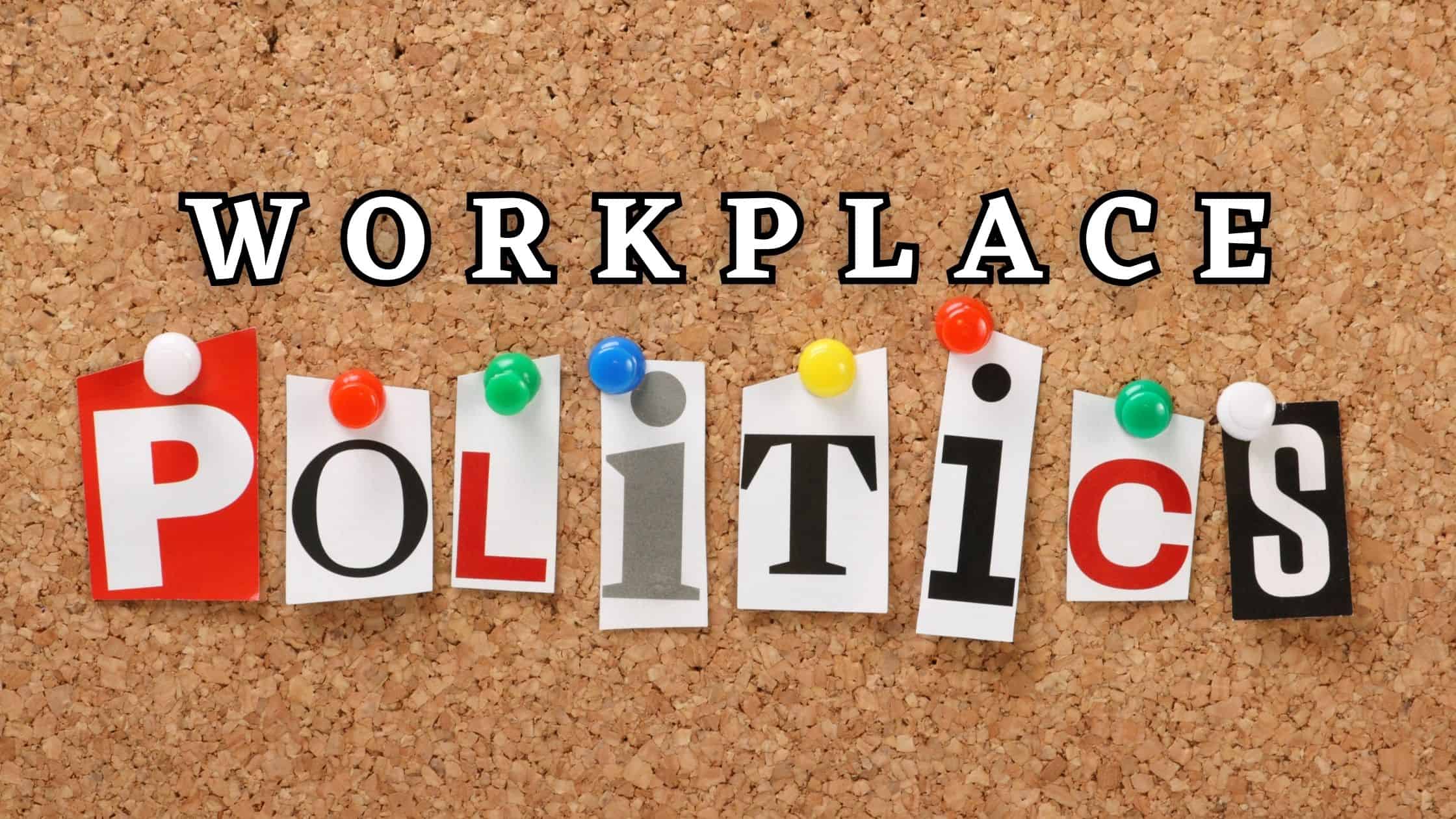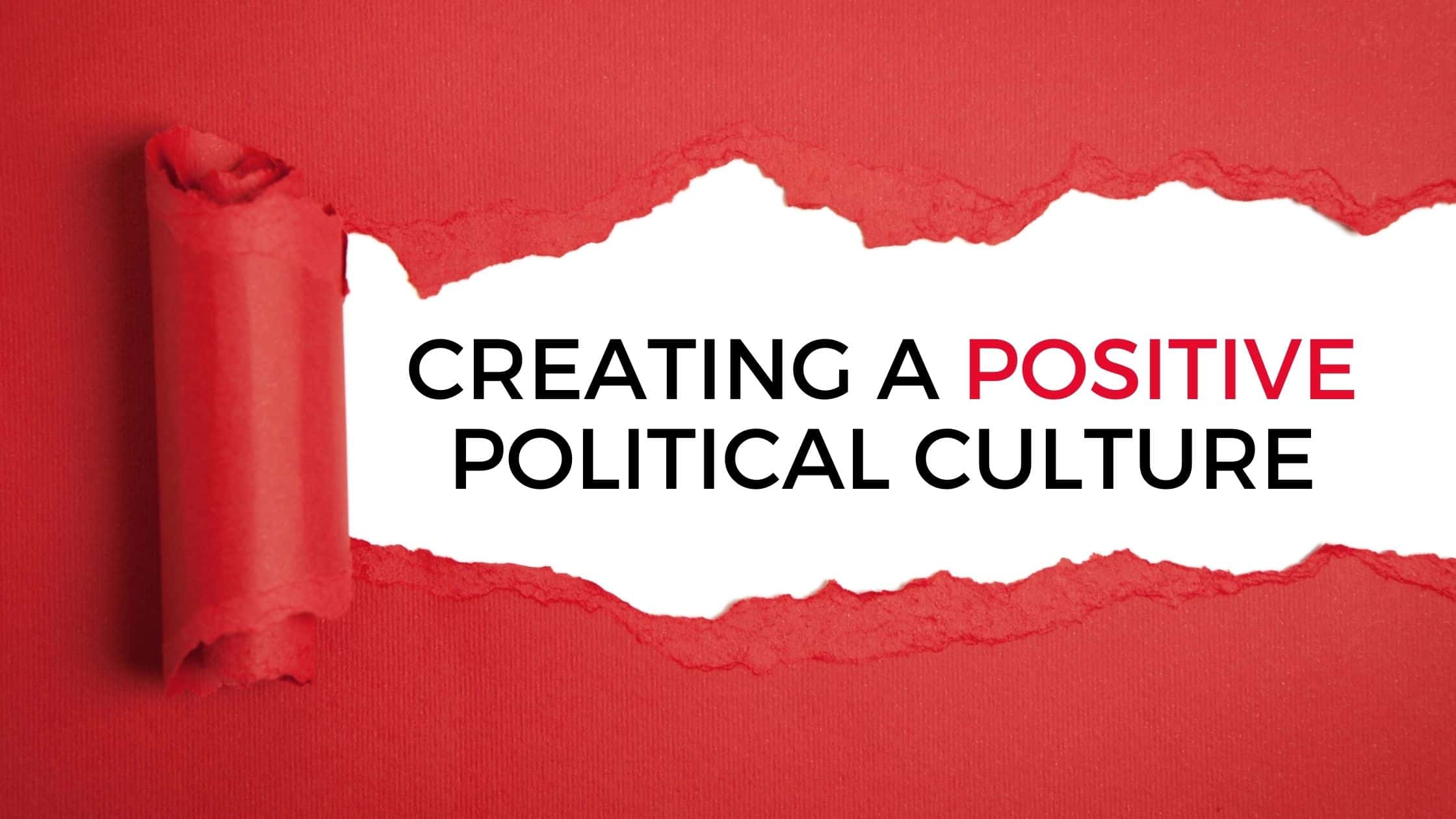If you’re anything like most senior leaders, you probably have no time for people who embrace stereotypical office politics. There’s at least one taking credit for someone else’s achievements, engaging in nepotism, and prioritizing style over substance. Some human beings just take the low road.
However, you don’t have to play politics the same way. There is a way to build influence and authority while managing your integrity.
By embracing Positive Politics, you can cultivate a workplace culture that values collaboration, authenticity, and transparency. Instead of politics as usual and playing people against one another, you can use your influence to achieve tangible business results while empowering others to do the same.
If you’re a bit skeptical, I get it! Cutting through the toxic political situation is no mean feat. However, with patience and persistence, you can lead purposefully and effectively without compromising your values.
Read on to learn how Positive Politics is the ultimate countermeasure to politics as usual.
Good Reasons to Despise Office Politics
A quick online search regarding why people hate office politics produces a laundry list of genuinely undesirable behaviors and descriptions. Here are a few unsavory adjectives related to people who engage in bad office politics:
-
- Slimy
- Backstabber
- Gossip
- Bully
- Manipulator
- Gaslightier
- Underhanded
- Saboteurs
- Suck-up
A common belief about corporate politics is that it’s all negative political behavior, and people selfishly adhere to their own personal agenda—in an unethical, self-centered way.
As a result, most leaders feel that being political means behaving in contrast to how they see themselves and their virtue. But the vast majority of leaders have the best intentions and act ethically and with integrity—the opposite of Negative Politics. It’s no wonder leaders consciously strive to avoid lousy office politics. Politicking is an affront to their identity.
Engaging in positive political behavior
Avoiding office politics entirely is also a political act—but one that leaves a void in place of your impact.
What would it look like to engage in Positive Politics? The kind where a leader can feel good about themselves at the end of the day, having not sold their soul or compromised their ethics?
There are logical opposites to negative political behavior. You may already be unwittingly doing them. Have you ever:
-
- Spent time intentionally building relationships with important stakeholders?
- Asked a colleague for advice about how to be more persuasive?
- Taken a discussion or a decision offline?
- Sought peer input or perspective about a controversial topic?
- Shared why the work you’re leading matters and what impact it’s having?
- Made a decision about which battles were worth fighting?
- Discussed your ideas with influencers and decision-makers before an official decision?
- Given feedback or insights to a colleague you care about?
- Tried to convince someone that your idea has merit?
- Updated a sponsor on the challenges, opportunities, or perspectives on an important topic?
If you answered yes to multiple behaviors, you might be further along the Positive Politics spectrum than you realize.
Workplace Politics Defined

What precisely does it mean to be politically positive at work?
Brandon & Seldman, authors of Survival of the Savvy, define organizational politics as “the informal, unofficial and sometimes behind the scenes efforts to sell ideas, influence an organization, increase power or achieve other objectives.” That definition is highly instructive and needs more criteria to be politically positive.
Stephanie Reynolds, CPO of Unify Consulting and a master of positive politics, says office politics incorporates three key elements.
Intention, curiosity, and a “same team” mindset
Intention considers the leader’s motive to shape decisions and outcomes to maximize their personal gain or serve the enterprise’s interests first. Curiosity means inviting an understanding of the other leader’s needs, concerns, and beliefs. Lastly, operating with a “same team” attitude refers to how they see themselves sitting on the same side of the table with other colleagues, jointly solving problems, finding opportunities, and leading initiatives.
Reynolds integrates these elements into a more comprehensive explanation.
“Organizational politics are people’s ability to understand how decisions are made, and the ability to influence those that make them for the benefit of the company and for individuals.”
In this context, the individual’s benefit comes from aligning with the enterprise’s gain and fellow leaders’ contributions. In other words, it looks at the whole and finds the balance as a steward of the enterprise.
Strengthening your political clout is a proactive measure and part of the balance. Hostile political players are in every organization, no matter how constructive your culture may be. It’s ethical and proper to defend yourself from such overly political operators. Being prepared requires an understanding of the political landscape and informal networks. The foundation of defense and the fuel of effectiveness are constructive relationships.
As Reynolds says, “leaders learn that acting politically means investing in trusting relationships and influencing others by joining them in their goals through honest, open-ended conversations that explore the needs of their fellow stakeholders, constituents, and boss.”
The result is Positive Political behavior in its finest form. The organization benefits from heightened collaboration and teamwork that brings a workforce together and builds solidarity for shared challenges.
The Senior Leader’s Role in Positive Politics
A shift occurs when senior leaders accept that being politically positive is one of their critical contributions. It’s no longer distasteful. In fact, many say it’s empowering to realize that it’s ethically appropriate to cultivate their political acumen.
Creating constructive relationships is one of an executive’s most important work products. Attending to relationships promotes fellowship among seasoned leaders who recognize their interdependence in achieving the organization’s goals and functional or business unit objectives.
In addition to receiving direct feedback and the unfiltered truth, fostering these relationships earns trust and the privilege of influencing peers in the most consequential decisions. Often those moments occur in a one-on-one discussion, but the impact reverberates throughout an organization. How you conduct these political moments is crucial to sustaining your integrity, and they’re powerful stories that can shape the company’s culture.
Turning Around a Negative Political Culture

I’d like this opportunity to share a real story with you that shows how a change in negative office politics can bring about significant productivity gains through a culture shift.
Two senior leaders in separate functions regularly embraced palace intrigue, aka negative politics. They covertly attempted to torpedo each other’s agendas. They openly fought, bickered, and sniped at each other in small meetings and public forums. Following their lead, other employees engaged in such behavior as well.
Eventually, irreconcilable differences caused the pair to leave as personal agendas were getting in the way of the company results.
Promisingly, their successors implemented a strategy to make collaboration and teamwork the norm for the two functions. They regularly attended each other’s staff meetings, spoke at each other’s all-hands meetings, co-authored messages explaining strategic decisions, visited clients together, and co-sponsored weighty improvement initiatives. They walked the talk of collaboration and explicitly communicated that they expected their people to do the same.
The turnaround was astonishing. They addressed critical cross-functional processes to their CEO’s satisfaction. Conflict gave way to cooperation. Stonewalling between key players became lunches and after-work drinks. The culture moved from toxic to highly functional through their leadership.
Sounds pretty good, right?
Strategies for Creating a Positive Political Culture

No matter what your culture is today, you can leverage your assets and cultivate positive political behavior. Consider the following levers to change bad corporate politics and get more of what you want.
Set Expectations and Reinforce Them
Share political expectations and recognize leaders who intentionally build relationships with key stakeholders, peers, and employees. Reward the behaviors that demonstrate team-building, cooperation, and an enterprise point of view.
Cascade Company, Function, and Department Goals
In positive politics, cascading goals open the door for leaders to join colleagues in their goals; it facilitates cooperation and open-ended conversations that lead to discovery. The “two in a boat” perspective thrives when incentives are tied to shared objectives so that one leader can’t win while the other “loses.”
Promote Transparent Positive Communication
Like the two senior leaders I spoke about earlier who rebuilt an atmosphere of collaboration and honest communication, you too can provide your team with the information they need to understand while building unity for the challenges at hand. Truthful, direct communication, even when the answers feel negative or incomplete, is central to trust, a priceless currency of leadership.
Bring Your Company Core Values to Life
Organizations share many values, but a few vitally important ones make your culture distinct and enduring. What are the core political values that could fuel your business’s performance? How might you bring them to life with engaging stories—the oldest and most natural way to learn?
Telling the right story paints a picture that instructs and reinforces what’s important for your leaders and the organization. Stories that connect actions to political values bring consistency, openness, and integrity. They make the value more relatable and human while encouraging trust.
Squash Negative Politics Every Time
“Me first” behavior directly contributes to creating a toxic political environment. An effective countermeasure to self-serving politics is removing any reward, such as recognition, while implementing positive reinforcing consequences to get more of what you want while letting undesirable behavior dissipate.
Invoke values such as respectful communication to prevent going down the slippery slope of harmful speech. Make it a collective leadership effort to squash gossiping, rumor-mongering, and trash talk that tears down other leaders or employees. It’s a simple strategy that removes the substantial fuel negative politics needs to thrive.
Final Thoughts
Navigating workplace politics doesn’t have to mean sacrificing your integrity.
On the contrary, by embracing positive political behavior and being intentional, curious, and having a “same team” mindset, you can achieve tangible business results while empowering co workers to do the same.
It’s essential to ethically strengthen your personal power, professional image, and build constructive relationships. But you can do that without divisive, unsavory office gossip, or undercutting others. It’s equally ineffective to bury your head in the sand and do nothing. Trying to escape office politics for fear of retribution or dislike of confrontation only breeds discontent.
Senior leaders play a pivotal role in promoting positive company politics. So, be patient and persistent, and lead purposefully and effectively without compromising your values. With the right mindset and approach, you can make a difference in your business environment and promote a culture that values cooperation, authenticity, and transparency.
Do that, and you will see a marked increase in unity, collaboration, and productivity.
Did you like this article? You might also like:
Essential Strategies For Leading Through A Downturn
Developing Your VUCA-Capable Leadership Culture: Keys For Success
Designing Powerful Teams: The 6 Conditions That Lead To 80% Of Your Effectiveness




